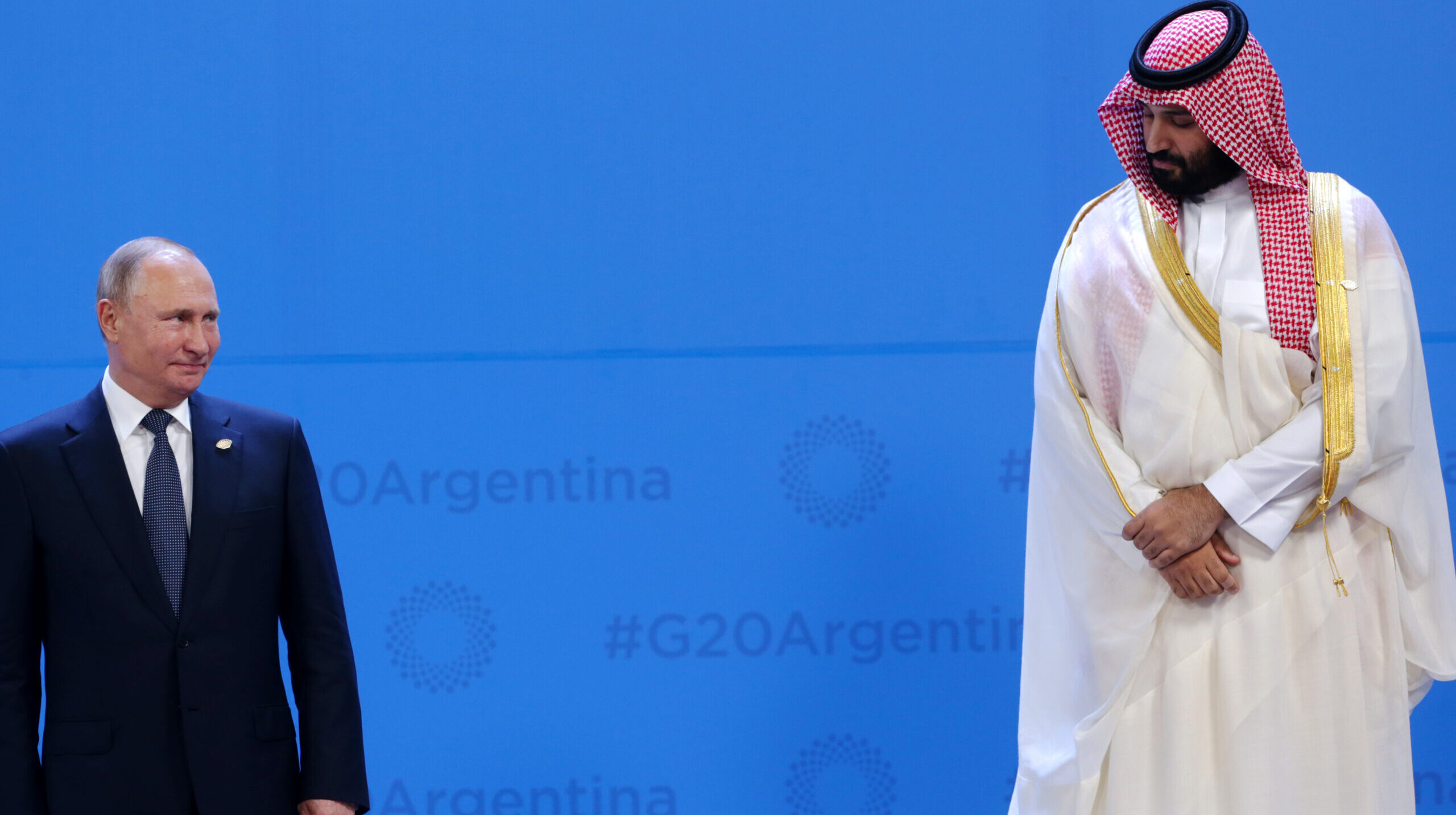Russian President Vladimir Putin is in Saudi Arabia this week, in only his third trip outside the former Soviet Union since the 2022 invasion of Ukraine, following visits to Iran and China. This choice emphasises the Saudis’ pivotal role over the coming years in determining the global currency landscape.
If Russia wants to de-dollarise the global energy trade, and America obviously does not, then Saudi Arabia, the world’s biggest oil exporter, will likely hold the key to whether the US dollar retains its primacy over the global energy markets. As Charles Gave and I pondered in our 2019 book Clash of Empires:
The argument against this second option has long been that the US stands ready to defend the House of Saud. American protection has always been the best money can buy: the fastest planes, best radars, most dependable missile systems, and a navy that controls the world’s oceans. Washington’s main selling point to its allies is that its 800 military bases around the world will keep them safe.
Conversely, in an age of great power rivalry, China’s promise to the rest of the world is: “become friends with us, and we will make you prosperous.”
Following Russia’s invasion of Ukraine last year, Saudi Arabia refused to pump up its own oil production, and in doing so helped Russia keep its economic show on the road. This will have been disappointing to the Biden administration, to say the least. What’s more, each time oil has broken below $80 per barrel, Saudi Arabia has somehow managed to corral Opec+ producers to ensure that supply cuts keep the price supported, although this ability is being severely tested.
Against this backdrop, in December of last year — with great fanfare and proclamations of everlasting friendship — Saudi Arabia hosted Chinese President Xi Jinping for a three-day state visit. Afterwards, at China’s instigation, Saudi was invited to join the Brics group of non-Western economies (along with Iran and the United Arab Emirates), with Riyadh reportedly considering a Chinese offer to build Saudi’s first nuclear power plant.
Over the past year, then, Saudi Arabia has defied all US wishes and expectations to become increasingly close friends with Russia and China. More shocking still to the Washington establishment was the announcement in March that long-time antagonists Saudi and Iran were to re-establish diplomatic relations — an agreement followed two months later by a surprise visit to Saudi by Syrian president Bashar al-Assad.
Events since then have accelerated further. On 20 November, the Saudi central bank announced it had signed a 50 billion renminbi swap line with the People’s Bank of China. This deal begs the question: what could Saudi Arabia possibly need renminbi for?
Just 10 days later, news broke that following a review by the Committee on Foreign Investment in the US, Washington had ordered a Saudi Aramco-owned venture capital fund to sell its stake in a high-end semiconductor company backed by OpenAI founder Sam Altman.
Both events are likely to prove significant. If the US government is now essentially telling what was originally the Arabian-American Oil Company that “your money is no good here: take it somewhere else,” then policymakers in Riyadh might well conclude that the problem lies with the dollar. Hence the swap lines with China.
Even if Saudi money is not good enough to invest in US semiconductor start-ups, it certainly remains good enough to buy US-made weapons. And so policymakers around the world face a choice between American security and Chinese prosperity.
A few years ago this was no contest for Saudi’s leaders, who were deeply worried about Iran’s regional ambitions. However, to the extent that the peace shisha has been smoked with Tehran’s mullahs and the hatchet buried, Saudi Crown Prince Mohammed bin Salman is probably wondering which now poses a bigger threat to his regime: war with Iran, or domestic upheavals like those seen during the Arab Spring of 2011?
If Iran is the bigger threat, then reinforcing links with the US is the rational course. But if domestic unrest is the greater concern, then more trade with China and more Chinese investment may well be the answer, placating local consumers with cheap cars and better public transport.
This week Putin will find himself in a country whose leaders are increasingly facing East, rather than West. Washington and its allies don’t seem to be in a position to correct this.
This is an edited version of an article which originally appeared in the Gavekal newsletter.











Join the discussion
Join like minded readers that support our journalism by becoming a paid subscriber
To join the discussion in the comments, become a paid subscriber.
Join like minded readers that support our journalism, read unlimited articles and enjoy other subscriber-only benefits.
Subscribe